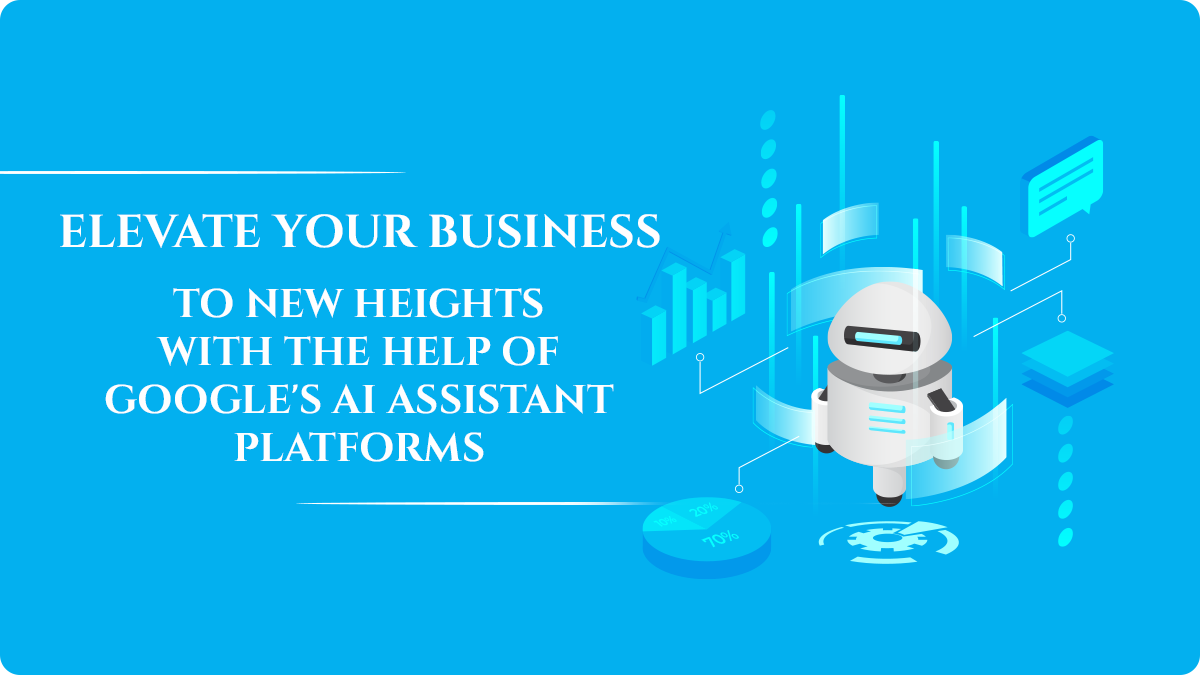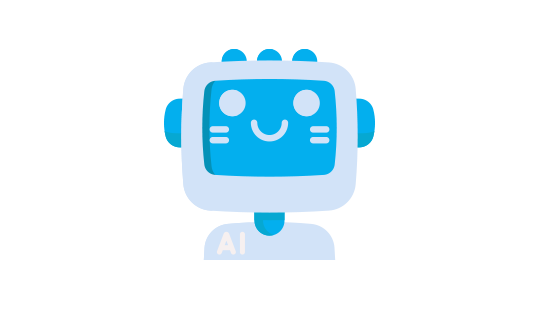In today’s rapidly evolving technological landscape, businesses must adapt to stay ahead of the competition and meet the ever-changing demands of consumers.
Artificial intelligence (AI) is one of the most revolutionary technologies causing this transition. AI has proven to be a game-changer for numerous industries, revolutionizing the way businesses operate, make decisions, and interact with customers. Among the leading pioneers in AI development is Google, with its array of AI assistant platforms that offer immense potential to elevate businesses to new heights.

Let us first discuss some of the AI assistance available and their potential benefits for businesses:
1. Google Cloud AI Platform:
Google Cloud AI Platform offers a suite of AI and machine learning tools that allow businesses to build, train, and deploy their own AI models. This can be extremely beneficial for businesses looking to leverage AI to improve their products and services, optimize operations, and gain valuable insights from their data.
2. Dialogflow (now known as Google Cloud Contact Center AI):
Dialogflow is a conversational AI platform that enables businesses to create chatbots and virtual agents for customer support and engagement. These AI-powered chatbots can handle customer queries, provide instant responses, and even perform specific tasks, leading to improved customer service and operational efficiency.
3. TensorFlow:
TensorFlow is a machine learning library that is available as open source and was created by Google. It empowers businesses to develop custom AI solutions, including image recognition, natural language processing, and recommendation systems. This can enhance various aspects of the business, such as personalized marketing, fraud detection, and process automation.
4. Google Cloud Vision API:
This API enables businesses to integrate Google’s powerful image recognition capabilities into their applications. For instance, it can be used to detect objects, landmarks, faces, and even moderate explicit content. Businesses can apply this technology for inventory management, quality control, or creating engaging customer experiences.
5. Google Cloud Natural Language API:
This API offers natural language processing capabilities, such as sentiment analysis, entity recognition, and syntax analysis. Businesses can use this to gain insights from vast amounts of text data, monitor brand sentiment, and analyze customer feedback, all of which can inform decision-making processes.
6. Google Cloud Translation API:
Businesses operating in global markets can benefit from this API, as it provides language translation services. Whether it’s for customer support, marketing materials, or communication with international partners, accurate and efficient translation can facilitate smoother operations.
7. Google Assistant:
Google Assistant is a virtual assistant that may be found on many different gadgets, such as smartphones, smart speakers, and smart displays. Businesses can create actions for Google Assistant, enabling customers to interact with their products or services using voice commands. This can enhance the overall customer experience and increase brand engagement.
8. Google AI Research and Innovation:
Google’s continuous investment in AI research and innovation often leads to new breakthroughs. While not a specific tool, the advancements in AI from Google can have a substantial indirect impact on businesses. For example, improvements in AI algorithms may lead to better search engine optimization (SEO) strategies, personalized advertising, and enhanced recommendation systems.
Read more: What is Instagram Threads, and how does it stack up against Twitter?
Now let’s explore the ways in which Google’s AI assistant platforms can empower and transform businesses across various sectors:
1. Enhanced Customer Experience:
One of the key advantages of Google’s AI assistant platforms is their ability to enhance customer experience. The integration of AI-driven chatbots and virtual assistants powered by Dialogflow allows businesses to provide instant and personalized support to customers. These AI assistants can handle common queries, offer product recommendations, and facilitate seamless interactions, leading to improved customer satisfaction and loyalty.
Imagine a scenario where an e-commerce website utilizes a Google AI chatbot to assist customers with their shopping needs. The AI chatbot can understand natural language queries and guide customers to find products matching their preferences. This level of personalized assistance not only saves time but also fosters a positive impression of the brand, ultimately boosting sales and customer retention.
2. Efficient Operations and Process Automation:
AI has the potential to streamline and automate various business processes, increasing efficiency and reducing operational costs. Google’s AI assistant platforms, such as TensorFlow and Google Cloud AI Platform, enable businesses to develop custom AI models tailored to their specific needs. These models can be used for tasks such as demand forecasting, inventory management, and quality control.
For instance, in manufacturing, AI-powered quality control systems can automatically detect defects and anomalies in products, ensuring only the highest-quality items reach customers. This not only saves time and resources but also prevents potential losses due to faulty products.
3. Data-Driven Decision Making:
Data is a valuable asset for businesses, and making sense of vast datasets can be a challenging task. Google’s AI assistant platforms offer advanced data analytics and natural language processing capabilities. The Google Cloud Natural Language API, for example, can extract insights from unstructured text data, such as customer feedback, reviews, and social media mentions.
By leveraging AI to analyze this data, businesses gain valuable insights into customer preferences, market trends, and brand sentiment. Armed with this information, businesses can make data-driven decisions, tailor their marketing strategies, and identify new growth opportunities.
4. Personalized Marketing and Recommendations:
Personalization is becoming a crucial aspect of marketing, and AI plays a significant role in delivering tailored experiences to customers. Google’s AI assistant platforms can analyze customer behavior, past purchases, and preferences to create personalized marketing campaigns.
The Google Cloud Vision API, for instance, can analyze images to identify products or objects that customers may find interesting. Based on this information, businesses can send personalized recommendations and offers to customers, increasing the likelihood of conversions and repeat purchases.
5. Natural Language Processing and Translation:
As businesses expand globally, communication with customers and partners from diverse linguistic backgrounds becomes vital. Google’s AI assistant platforms offer powerful natural language processing capabilities, enabling businesses to understand and respond to customers in their preferred languages.
Moreover, the Google Cloud Translation API facilitates seamless translation of content, enabling businesses to reach broader audiences and expand their global presence without language barriers.
6. Voice-Activated Interfaces and Smart Devices:
The rise of voice-activated interfaces and smart devices has transformed the way people interact with technology. Google Assistant, the voice-activated AI assistant, is integrated into various smart devices, including smartphones, smart speakers, and smart displays.
Businesses can leverage Google Assistant’s Actions on Google platform to create voice-based interactions with their products and services. This opens up new avenues for customer engagement and brand exposure through voice-activated searches and commands.
7. Cutting-Edge AI Research and Innovation:
Google’s commitment to AI research and innovation continues to push the boundaries of what’s possible with this technology. As new breakthroughs occur, businesses can expect access to even more advanced AI tools and capabilities.
The continuous development of AI algorithms can lead to more accurate predictive models, better image recognition systems, and enhanced natural language understanding. Businesses that stay up-to-date with the latest AI advancements can gain a competitive advantage and stay ahead in their respective industries.
Conclusion:
Google’s AI assistant platforms present a wealth of opportunities for businesses to elevate their operations, improve customer experiences, and drive growth. From chatbots and virtual assistants to advanced data analytics and personalized marketing, these AI tools empower businesses to make smarter decisions and optimize processes. As AI technology continues to evolve, businesses that embrace and integrate these innovative platforms are poised to reach new heights and remain at the forefront of a digitally-driven future.
